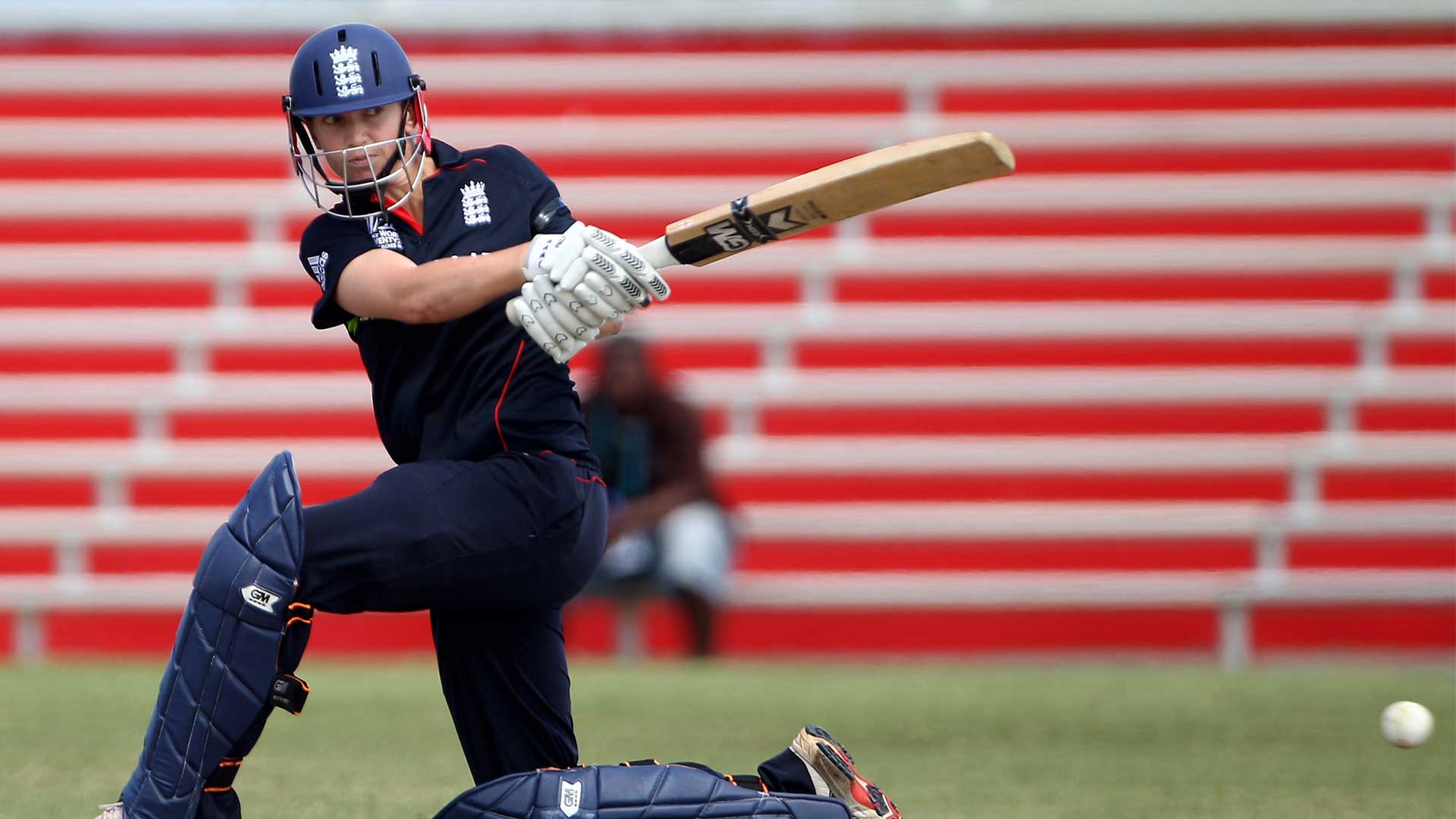



INTERVIEW BY LISA WHYBROW
"So Beth, here we are with our first edition of the MaSPA newsletter and I thought, who better to kick it off on the women's front than the Middlesex legend that is Beth Morgan?’"
"Well, I’m very honoured. Thank you. Happy to do anything that can help the Association."
"So, to question number one, and I know this has been asked of you many times, but what inspired you to become a professional cricketer?"
"Well, it's a funny question really, because actually, when I was growing up, as you know, we didn't have the opportunity to become a professional cricketer, so it was never something I thought would be an option. Now obviously it very much is for players coming through, which is amazing, but I guess I never thought that it would be a living for me. It was just that I loved the game of cricket and I loved playing. I think I saw a snippet on Grandstand when I was about 12 years old of the England Women winning the World Cup in 1993 - up until that point I didn't even know there was an England women's cricket team. That was probably a bit of an inspirational moment where I thought, ‘Oh that actually is possible as a path you can go down’. So from that point onward it went from strength to strength. So yes, that was probably a bit of a moment but never in my mind did I think, ‘Yes, I could be a professional’. How times have changed!"
"And what about home life? Was there anyone at home that helped you with it?"
"Well, my dad definitely. He went above and beyond, ferrying me around the country and the world, even. And my mum, of course. My family were very supportive. My dad went looking for newspaper cuttings from various places in London to see if we could find a women's cricket club because I struggled a bit joining in with the boys and he knew that would help me. We did eventually manage to find that in Gunnersbury and I've pretty much been there ever since, so it’s everything. He was a massive influence and my biggest supporter and I definitely wouldn't have been able to do what I've done without my family. We just generally loved sport and we were out in the garden all the time playing football, basketball and cricket and all sorts of different things. Within my close family, my uncle was a professional cricketer (Eddie Hemmings) which obviously helped the link. I remember watching him on the TV and going to games and that inspired me to want to take up the game a bit more seriously. From there I kind of fell in love with the game. Obviously I learned a lot from watching him play cricket as well."
"Could you tell me about some of the challenges you’ve encountered during your career?"
"Well, from a generic cricket point of view, towards the end of my career my biggest challenge was probably injuries, which obviously affects a lot of sports people, but particularly from my perspective, not being a professional when those injuries hit resulted in me having to make a choice. I had a fairly serious shoulder injury which had a big impact. We were probably classed as semi-professional by that point because of the funding we received to train and the expenses to play, but we still needed to make a living outside of that. So I actually worked for a Chance to Shine, worked in schools and some ambassador work, which was brilliant, but we weren't full time professional cricketers. We were that transition period, so I had to make a bit of choice to actually go down that route and get a proper job."
"So having a contract would have made it a lot easier?"
"Yes, potentially. I think that balancing life and managing earning money, and my studies as well (I was going through university when I first played for England which obviously in itself brings challenges), was difficult. Managing that and being able to give enough time to cricket to be able to pursue and realise your dreams of the playing at the top level was tricky. Hopefully that's gone away a little bit for the players coming through now."
"A very valuable insight into the challenges faced by female players, thank you. Onto focus and motivation on the field – it can sometimes (hopefully) be a long time in the middle. Did you have any techniques for staying focussed and motivated?"
"I'm trying to think about this and I'll be really honest, I can’t think of anything! I just loved the game of cricket and I loved any opportunity to be on the field. Just wanting to be in the game really and enjoying being in the game whether that's on the field, with bat or ball, and even when you're off the field. I was a bit of a badger when it came to cricket and I loved it so I didn’t really have any issues in that way. I think while you love the game you just want to be involved."
"There have been some major changes during your career in women’s cricket. What would you say have been the most important or influential moments?"
"Well, gosh, I made my debut almost 20 years ago, I worked out, and what's happened in the last 20 years is unbelievable. One of the biggest things is the opportunities available to the players now, which covers areas like funding and just the general exposure of women’s cricket. There's a lot being made of the money now available to players in the WPL and in terms of exposure we’ve just had the T20 World Cup and then there’s the Big Bash and The Hundred – all huge competitions. But underlying that is, I think, the fact that the players are getting opportunities to train full time. The programmes that are in place now for young players coming through the pathway to being a professional cricketer are unbelievable and I believe it's that opportunity that's made the biggest difference. The exposure comes as a result of the product being better for it - the players are improving and the standards are going through the roof. That's amazing for a young player now to have those opportunities to earn money playing the game that they love, rather than having to find ways of doing it outside. So yes, it's grown unbelievably over the last 20 years."
"Completely agree. I said to someone the other day, ‘You know, if I’d started playing later and someone had told me what to do and coached me, I could've been quite good, instead of just rocking up and throwing the ball down’. (Beth laughs a little too hard!)"
"Yes, you think about how many players we had and if they’d had the opportunities that there are now, how different it could have been…"
"So, your contribution generally, how has it changed over the years?"
"Well for many years I was very much on the field and my main contribution was through playing the game. I loved it and was proud to captain Middlesex for a while there. Over the last few years it's been amazing to be on the other side and see it grow into a professional game, working within for Berkshire and Southern Vipers. Seeing now those players coming through and the opportunities they have is amazing. I feel I’ve lived through a huge transformation and being able to see it from all sides has been an honour. I feel very grateful for having had that opportunity."
"Can you remember a particularly memorable match or funny moment in your career?"
"Oh I feel like I'm going to be really corny here. I'm trying to think of something funny to use rather than just winning the World Cup in 2009"
"Yes, brushing that small moment under the carpet…"
"I'm trying to think if there's anything. I was never that funny! If I had to talk about memorable matches it would be the World Cup final, or finals! Certainly in Sydney to win in Australia when Australia had been so dominant for so many years was amazing. Let me come back to the funny thing!"
"What are your future goals and aspirations for both the game and you personally?"
"Well, for the game I think it's just to continue going in the direction it’s currently going. I think it's so positive; the opportunities for the players are massive, the money now coming into the game, the exposure the players are experiencing, and the opportunities to play all around the world, playing in front of big crowds. It’s just incredible. The awareness around the game and around breaking barriers, increasing equity in sport and it being a game for all. So overall, just continue with what’s happening as it's going in a good positive direction."
"And in terms of you and your aspirations?"
"Well just being part of it and seeing it progress is amazing and I’m really enjoying it so ideally, continue along those lines, doing what I can to help bring about more change and see where it takes me."
"Beth, thank you so much for your time."
* Beth’s illustrious career with Middlesex, starting as a bowler and finishing as a batter due to a shoulder injury, spanned over 23 years. For this, she was recognised with the award of Honorary Life Vice-President of the Club, the first woman to be bestowed the honour. She is the Club’s most capped female player, making her debut two months before her 15th birthday, and the only person to feature in every season of the Women’s One-Day County Championship. She was selected for England to play in the Women’s European Championship, aged 17 and went onto represent her country for the next 13 years.
FOR A MORE DETAILED LOOK AT BETH’S CAREER, HERE ARE THE LINKS TO SOME ARTICLES ON THE MIDDLESEX CCC WEBSITE...
https://www.middlesexccc.com/news/2019/10/beth-morgan-wins-cricket-writers-club-womens-cricket-award




